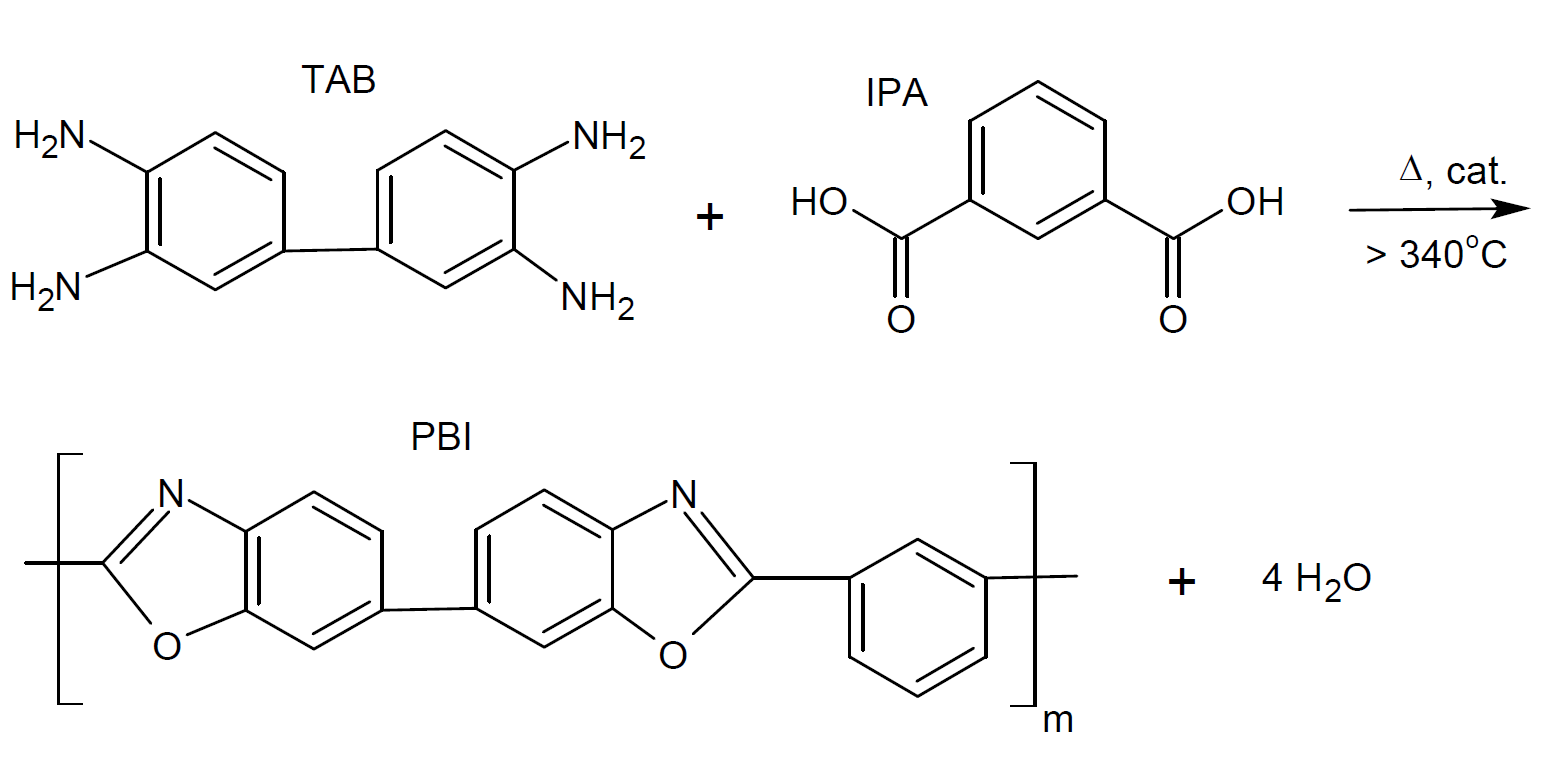Polybenzimidazole (PBI)
Properties and Applications
Polybenzimidazoles (PBI) are extremely heat-resistant heterocyclic thermoplastics. They are prepared from an aromatic tetraamine and an aromatic dicarboxylic acid or a derivative of it. One of the most common PBIs is poly[2,2′-(m-phenylene)-5,5′-bibenzimidazole] which can be produced by condensation of isophthalic acid with 3,3’,4,4’-tetraamino diphenyl which undergoes spontaneous cyclization at temperatures > 340 °C in an inert atmosphere:1

Polybenzimidazole is quite expensive and difficult to manufacture but
has outstanding properties. It is one of the highest performing
engineering thermoplastics on the market and offers one of the
highest heat resistance and service temperature of any unfilled
thermoplastic. It has a glass transition temperature of about 425°C
(800°F) and no melting point and its heat deflection temperature at
264 psi (1.8 MPa) is about 815°F (435°C). It also possesses
outstanding chemical resistance.
PBI has a very low level of ionic impurities and does not outgas (except water). These characteristics makes
it ideally suited to semiconductor applications (vacuum chamber
applications). However, its extreme hardness makes it difficult to machine. In most cases, diamond tools are recommended or required. Other
applications include heat resistant apparels, contact seals, membranes for various separation processes, insulator bushings, and thermal isolators.
Manufacturers & Distributors
Companies |
Brands |